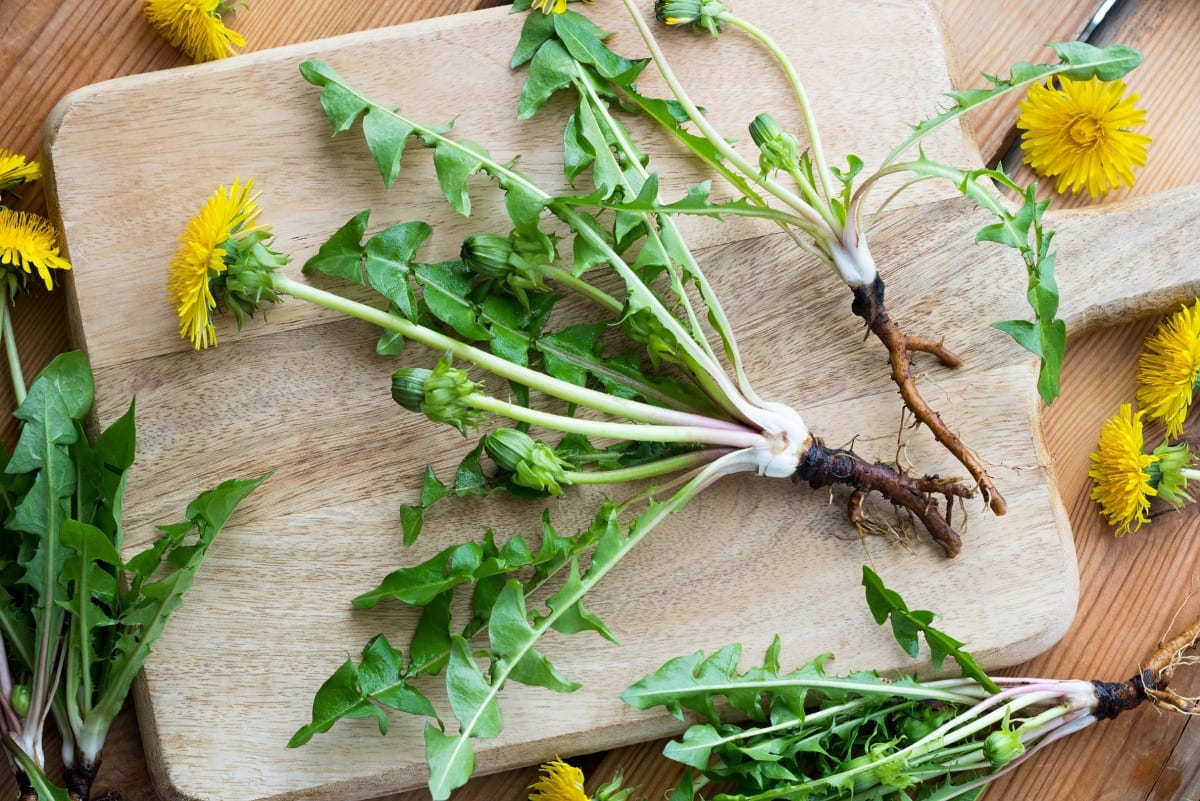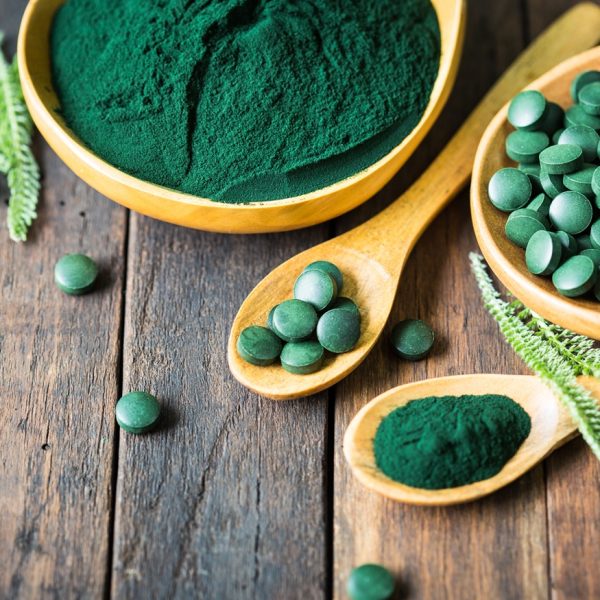Many of us will experience a bout of constipation at some point in our life. Here are 5 herbs instead of laxatives.
Many of us will experience a bout of constipation at some point, especially after periods of over-indulgence with rich foods, physical inactivity, or a change to our usual routine. The discomfort often associated with this makes the desire for a quick solution such as laxatives quite understandable!
Constipation tends to be classified as (1):
- Passing a stool less than three times per week
- If the stool is often hard, dry and difficult to pass
- If there is straining or pain when going to the toilet
However, herbalists would consider it unhealthy if a stool is not passed at least once per day, since emptying the bowels is a major route for the elimination of waste products from the body (2), and regular easy-to-pass bowel movements are considered an indication of healthy digestive function.

Although the cause of constipation may not always be clear, it is often caused by lifestyle factors, such as a diet insufficient in fibre, dehydration, and too much time spent sitting down (1). Stress is also a major factor which contributes as this takes our body’s priorities away from the “rest and digest” mode with the parasympathetic nervous system, to “fight or flight” mode with the sympathetic nervous system.
There is a variety of laxatives which are widely available and function in different ways. They are generally suggested to be tried in the following order if the prior one does not work (3). Bulking laxatives (fybogel and methylcellulose) which increase the bulk of the stool which in turn applies pressure to the bowel wall stimulating its activity. Osmotic laxatives (Duphalac, Lactugal, Movicol, Laxido, CosmoCol, Molaxole and Molative) which draw water from the rest of the body helping to soften the stool and making it easier to pass. Stimulant laxatives (Dulcolax, Senokot) stimulate the muscles lining the gut aiding the movement of waste products along the gastrointestinal tract and passing of the stool.
However, despite the temptation to reach for laxatives during times of constipation, they are only really recommended as an option after relevant lifestyle measures have been adjusted. This includes eating sufficient fibre (particularly from vegetables and fruit), ensuring you are well hydrated (with water rather than alcohol or sugary drinks), reducing alcohol consumption, and increasing physical activity levels such as going for a daily walk (1).
Whilst laxatives can be a quick fix and may provide the welcome relief from constipation we are looking for, they should be taken prudently and only when needed as a short-term measure in most cases. Despite their common use, taking laxatives long-term can prove problematic. One of the main issues with taking laxatives long-term is that their over-use can lead to a somewhat ‘lazy’ or atonic bowel resulting in a dependence on laxatives to be able to pass a stool at all.
Furthermore, taking laxatives generally speeds up the faecal transit time, and a rapid faecal transit may rush some nutrients beyond their optimal absorptive timespan, meaning that we miss out on absorbing the full range of nutrients from food. Another factor to consider is for those taking prescribed medications, in that long-term use of laxatives can mean that some drugs are not absorbed due to the fast transit time. Additionally, certain laxatives can interfere with the absorption of drugs by binding to them and carrying them out of the body before absorption has taken place (4).
The good news is that certain herbs can help to readjust the balance in the body so that passing a smooth stool becomes a regular habit, which is easy to do!
When taking herbs for any health issues, the primary goal is always, where possible, to restore healthy function of the body’s systems, and constipation is no exception to this.
A general herbal approach to get the bowels moving may look at providing support in the following ways (2):
- Improve liver function to promote bile production which will stimulate healthy digestive processes: herbs include dandelion root and milk thistle.
- Increase stool bulk: through diet and herbs such as slippery elm and psyllium husks.
- Improve motor function or peristalsis (movement of the gastrointestinal tract which helps stools to ‘pass’ out of the body without straining), improve gastrointestinal lubrication with mucilage: linseeds, aloe vera juice.
- Gentle laxatives: include licorice and yellow dock.
- Stronger anthraquinone-laxatives* are a last resort: include senna, cascara, aloe resins.
Here we explore 5 herbs which are well worth trying if you are considering taking laxatives.
Dandelion root

Dandelion is a common herbal remedy which well-known for aiding natural detoxification processes. The root has a particular affinity with the liver, where due to its bitter taste, it promotes the production and flow of bile, acting as a digestive aid and assisting in cases of constipation.
Dandelion is commonly given by herbalists, often being a first port-of-call in cases of constipation where digestive support is required and liver detoxification processes need a nudge in the right direction. Dandelion is generally gentle, yet very effective.
Dandelion can be helpful when there is constipation accompanied by an overall feeling of sluggishness in the digestion, when fats are not well tolerated and there may be dyspepsia (discomfort or pain in the upper abdomen, particularly after eating or drinking).
Slippery elm

Slippery elm acts as a bulking agent which can be helpful in cases of constipation. This means that it bulks the stools, creating contact with the bowel wall and promoting peristalsis which is the movement that helps with the passing of stools. In addition to this bulking action slippery elm also has demulcent properties due to its mucilage content. Mucilage is a gelatinous constituent (5) found in some herbs which can be thought of as a kind of ‘slime’ beneficial for soothing inflamed mucous membranes, as well as providing lubrication which is helpful for softening stools that are particularly hard or difficult to pass.
Slippery elm is also a nutritive tonic for healing tissues and can help to heal anal fissures or tearing which may have occurred as a result of straining to go to the toilet or passing large hard stools. In cases of sensitivity or inflammation in the digestive tract, it can help to heal and soothe the mucous membranes. In addition to this, slippery elm has the benefit of helping to modify the bowel flora (6), creating a more harmonious environment which is conducive to passing healthy stools.
Aloe vera juice

Aloe vera juice is soothing to the digestive tract, and due to the presence of bitter principles it stimulates bile flow from the liver, which is thought to be the mechanism which means aloe juice can help to regulate and stabilise bowel movements It has a gentle laxative effect in some cases of constipation.
According to the traditions of Ayurveda, aloe tonifies the agnis. The agnis are linked in part to digestion, and are known as the digestive fire with the function of regulating digestion, absorption and assimilation. When agni is strong, it is considered that food is digested properly and toxins are eliminated. Energetically speaking, agni is also proposed in a much broader sense than digestion as a creative flame which is key to all transformations in life. Plants also contain agni, which can be passed to humans when they take herbs, thus influencing the power of digestion (7).
Please note: Aloe vera juice is considered cooling, soothing, and has a gentle laxative effect because of its mucilaginous properties, and is not to be confused with aloe resins, taken from a different part of the same plant, which are a strongly stimulating anthraquinone-laxative and only recommended as a last-resort, in small doses, and for very short-term use.
Licorice
Licorice is one of the most widely used herbal remedies, with many applications across the world, where it is unanimously applied as a nutritive for healing tissues amongst other things. It has an affinity with mucous membranes in various body systems, including the digestive system.
It has mucilaginous properties that help to heal and repair damaged or inflamed tissues, which combined with its mildly laxative effect make it a wonderful herb for aiding smooth bowel movements.
Senna

Senna is an anthraquinone-containing herb which has a strongly stimulating laxative effect. It is recommended as a last resort, or a very short-term temporary measure to get things moving, while other herbs are employed to rebalance the body’s systems so that digestion works efficiently and bowel movements become easy and regular.
Senna is among the well-known strong herbal laxatives (alongside cascara and aloe resins), containing anthraquinones which have a stimulating laxative effect. Whilst this can be very effective in the short-term to aid bowel movements, just as with the pharmaceutical version of strongly stimulating laxatives, these are only recommended as a last resort. From a holistic herbal medicine perspective, the effect of anthraquinone-laxatives is only really symptomatic (2). This means it does not address the root of the issue, and in addition to this, they tend to cause wind and griping which can aggravate certain conditions associated with constipation such as bowel irritability. Therefore they are best avoided altogether in these cases.
As such, these anthraquinone-containing laxative herbs are only recommended in some cases of constipation where the bowel itself requires stimulation due to their direct effect on the colon where they create peristalsis (movement) (8), and as a very short-term measure.
Summary
If in doubt about which herbs might be best for you instead of laxatives, or if you have ongoing issues with constipation, then an appointment with a herbalist will provide you with the relevant guidance and specific treatment plan to best assist you. You can see our resources page for details of how to find a herbalist.
References
- Constipation. NHS website. https://www.nhs.uk/conditions/constipation/. Accessed 17 December, 2022.
- Bone K, Mills S. Principles And Practice Of Phytotherapy. China: Churchill Livingstone Elsevier; 2000.
- Laxatives. NHS website. Laxatives – NHS (www.nhs.uk). Accessed 18 December, 2022.
- Constipation. Merck Manual website. https://www.msdmanuals.com/professional/gastrointestinal-disorders/symptoms-of-gastrointestinal-disorders/constipation. Accessed 17 December, 2022.
- Hoffmann D. The New Holistic Herbal. Shaftesbury, Dorset: Element Books Limited; 1996.
- Bone, K, The Ultimate Herbal Compendium. Warwick, Queensland: Phytotherapy Press; 2007.
- Frawley D, Lad V. The Yoga of Herbs. 2nd ed. Twin Lakes: Lotus Light Publications; 2008.
- Yarnell, E. Phytochemistry and Pharmacy for Practitioners of Botanical Medicine. USA: Healing Mountain Publishing; 2004.
































